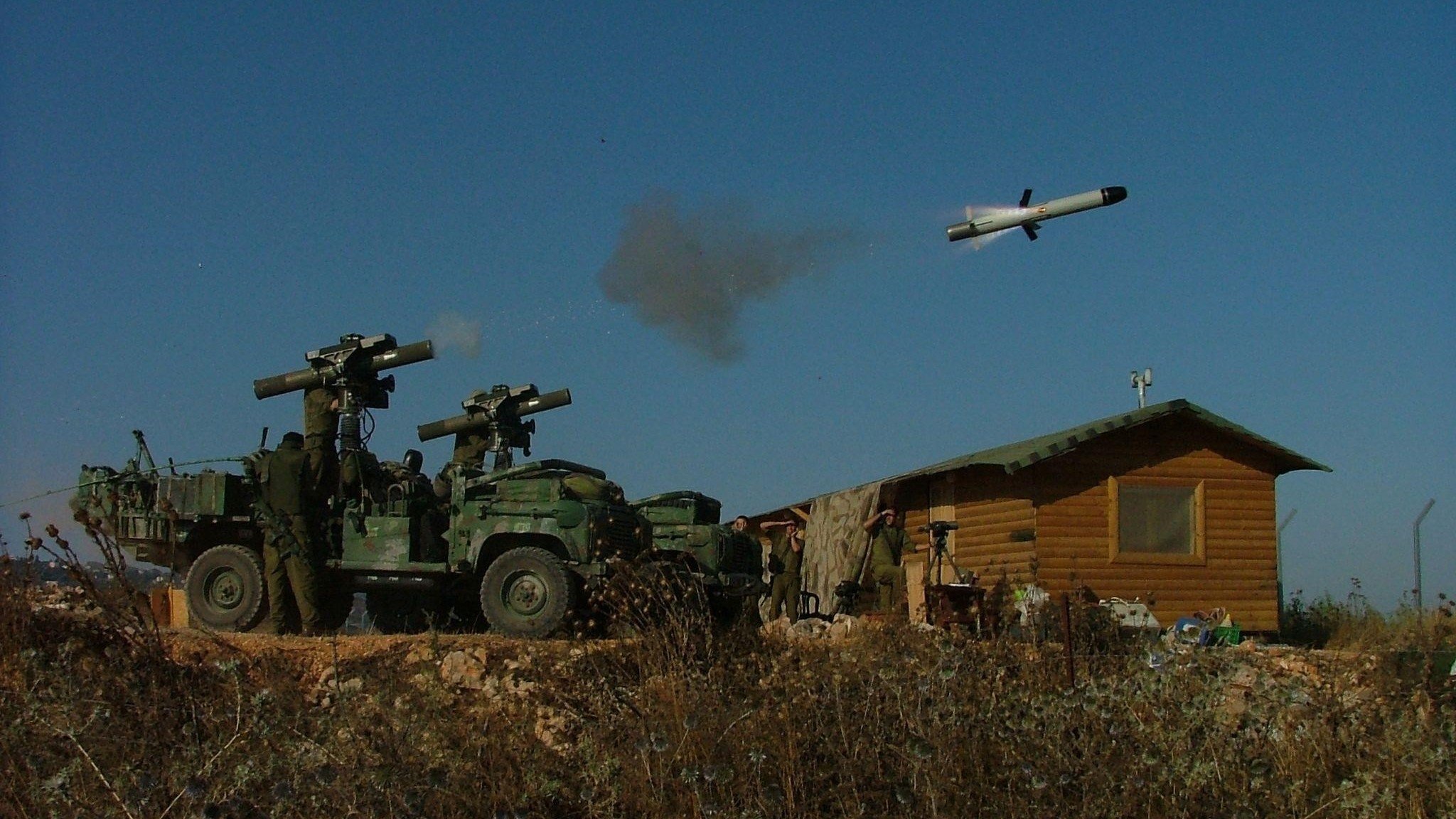To placate Russia, Israel told Baltic states it would block weapon transfers to Ukraine: Sources

The Spike ER could benefit Ukrainian forces. (Rafael)
TEL AVIV: When Estonia, Latvia and Lithuania announced they had received permission to transmit US-made weapons to Ukraine as part of an effort to support Kyiv in the face of a potential Russian invasion, it raised questions about what other systems could be handed over to the Ukrainian government.
Scratch any Israeli-made weaponry from that potential list.
Sources here tell Breaking Defense that in December, as Russian forces began massing along the Ukrainian border, the Israeli MoD sent word to the three Baltic nations that if they ask to transfer weapons to Ukraine, they will be denied — an almost unheard-of preemptive denial, driven by Israel’s need to balance its relations with Russia.
Like the US, Israel puts strict “end-user” regulations on weapons sold abroad, which legally restrict the ability of the buying nation to send the equipment to a third-party nation without permission from the original producer. The preemptive move from Israel was driven by a belief that Ukraine would seek to lay hands on the Spike anti-tank weapon, built by a joint firm of Israeli and German companies.
Israel-Ukrainian relations are overshadowed by the Israeli interest in keeping a good channel with the Kremlin, needed to allow Israel to operate in Syria against shipments of Iranian made weapons system on their way to Hezbollah in Lebanon. The threading of the needle by Jerusalem was on display during a December visit to Israel by Ukrainian Defense Minister Oleksii Reznikov, which was reportedly kept low-profile at the request of the Israeli government.
A spokesperson for Latvia’s MoD said “Latvia is not planning to send to Ukraine any weapons produced by Israel, therefore we cannot comment on this information,” and noted the previous agreement to send US-made equipment. A spokesperson for the Lithuanian MoD noted they hold “regular” talks with their Israeli counterparts, including a Jan. 31 meeting between the Israeli ambassador and Lithuania’s vice minister of defense; “However, no transfer of Israeli-made weapons to Ukraine have been raised during the bilateral talks.” An Estonian MoD spokesperson did not respond by deadline, but as with the other nations, there are no signs the Estonians are moving to shift Spike weapons to Ukraine.
The Israeli MoD also declined to comment for this story, but outside voices stressing the delicate dance that the government in Jerusalem has to do when it comes to Russia.
“Every type of indirect intervention in this crisis can harm the special relations between Jerusalem and Moscow,” explained a senior Israeli defense expert, who talked to Breaking Defense on condition of anonymity given political concerns. “Everything that has even the slightest connection to the situation in this part of the world, should involve a very high-level consideration of the potential implications.”
RELATED: As Russia threatens Ukraine, Baltic nations work to update armored vehicle fleets
Eldad Shavit a senior researcher in the Israeli Institute for national security studies (INSS) wrote recently about how Israel needs to balance its political ties to both Washington and Moscow.
“It is important to emphasize again that these developments also require Israel to immediately formulate a policy and prepare for the possibility that the crisis will develop into a military confrontation,” Shavit wrote. “Even if there is a desire and need in Israel to continue to maintain good relations with Russia, it may be in conflict with US administration policy, especially if a decision is made to significantly increase diplomatic and economic sanctions against Russia.”
While Israel maintains political relations with Ukraine, it has not sold the country any weapons in the last decade, according to data maintained by the Stockholm International Peace Research Institute (SIPRI). But through Eurospike GmbH, a joint venture between Israel’s Rafael and Germany’s Diehl Defense and Rheinmetall, all three of the Baltic nations have ordered the Spike anti-tank weapons.
Estonia and Lithuania currently operate the Spike LR variant, while Latvia operates the LR ,LR2, ER and SR variants of the weapon. On Jan 20, EuroSpike announced the Estonian military had placed a new order for SR Spike missiles, including training missiles and cases.
In the meantime, the Russians are sending indirect signals to Israel, with an announcement of joint patrols with the Syrian Air Force, some near Israel’s border. Already, advanced fighter jets of the Russian Air Force took part in reconnaissance flights near the Golan Heights in mid-January, and according to an announcement from the Moscow Ministry of Defense those flights “will continue on a regular basis.”
According to the Russian Ministry of Defense, among the aircraft used were the Sukhoi 35 multi-mission fighter jet, which entered service in 2014, the A-50 AEW and command and control aircraft, as well as Syrian MiG-23 and MiG-29 fighters.